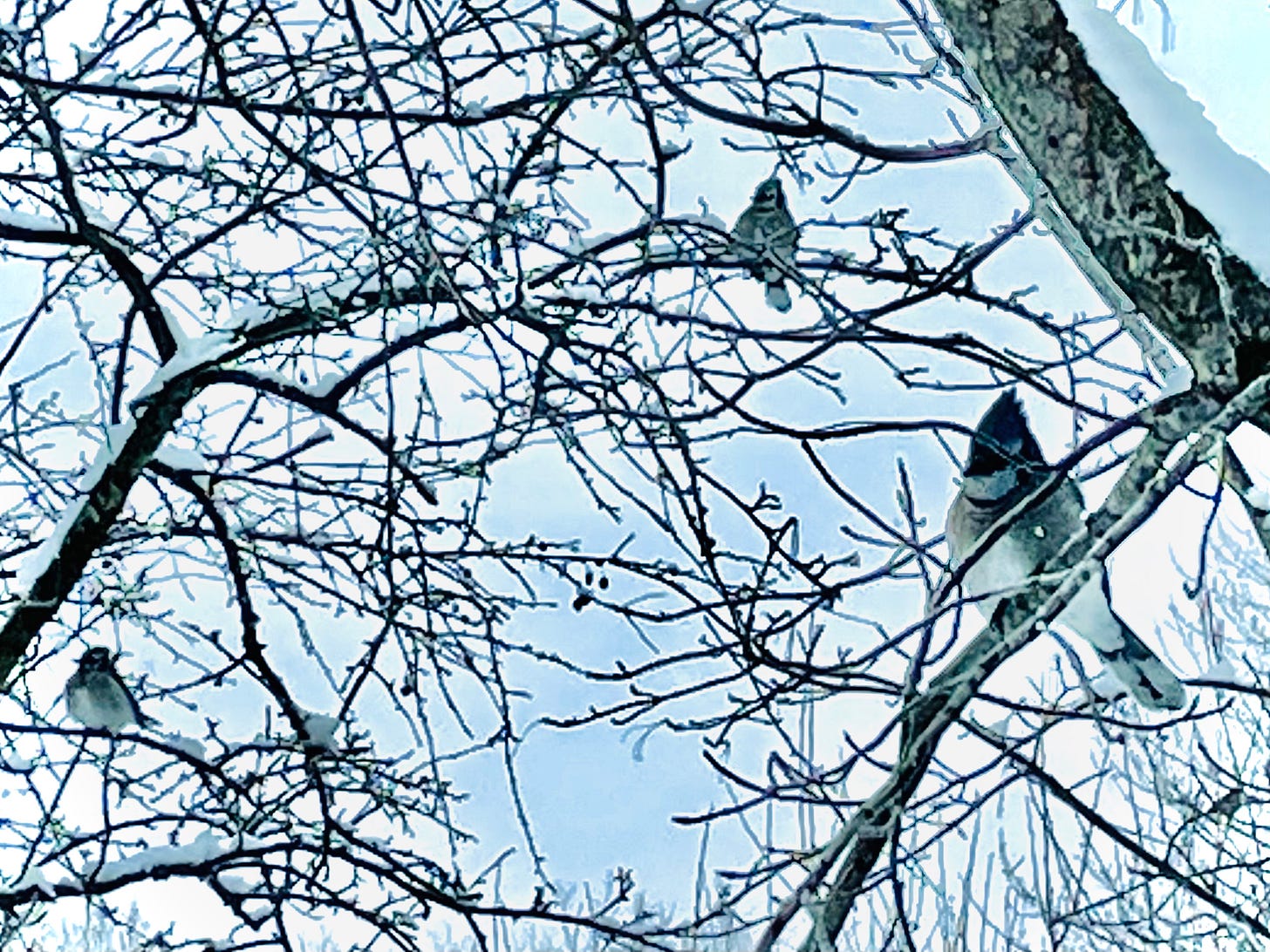Flurries: News, like icy snow, keeps coming but rarely sticks
The attention span for accounting and audit news is typically short. Stories fall from the sky for journalists and critics but get shoveled away quickly. Always another round!
White-Eyes By Mary Oliver
In winter
all the singing is in
the tops of the trees
where the wind-bird
with its white eyes
shoves and pushes
among the branches.
I'm back in Philadelphia after several weeks of holiday visits with family and friends in Chicago. It took longer than usual to drive back, owing to winter storms and my own new unwillingness to drive the last three hours on Interstate 76 in the dark through non-stop construction.
The week between Christmas and New Year's is usually quiet. But, as I wrote last weekend, Dave Michael blew things up with his December 31 story on SEC collections, or I should say lack of collections. The story is still reverberating. Stay tuned...
I got back expecting to start teaching a 7-week version of my custom-developed fraud case course for Montclair State University on the 23rd but, as the old Yiddish saying goes, "How do you make God laugh? Tell him your plans." We are going to move that one back to fall 2025 and, instead, I am teed-up to teach a required accounting ethics course for department chair Deniz Appelbaum in late spring.
But, all is not lost. University of Miami, where I taught the original 12 session version of the course last March-April had scheduled me to teach it again as a required course to its MAccs starting Jan 13, Monday! So, disco moves worthy of John Travolta were done and I am ready.
I've updated the course even from last spring, with more class presentations and fewer outside writing assignments, and plugged in discussions of Macy's and Super Micro instead of GE and AIG so that it "hits different" as the youths say. Professor Scott Cunningham at Baylor wrote something interesting about grading student essays in the age of ChatGPT.
I am also excited about heading to Charlotte next week for the AAA Audit Mid-year conf where I will be on a Saturday panel with Olga Usvyatsky , Ally Zimmerman, PhD, CPA (OH), CMA and Brad Jacklin to talk about when and how academics should talk to media about their expertise and research. Say hello if you are there!
Journalism and private equity and public duty
Hamilton Nolan wrote a great piece about journalism and private equity.
The private equity goons did not eviscerate the company because of their political beliefs. They did it because they only valued making money. This is the standard incentive in most industries, but in journalism, it has the effect of turning a publication into shit. Journalism is not a business that responds well to the usual American capitalist imperative to treat your customers as victims to be tricked and sucked dry. The overall health of the free press is therefore a handy barometer to tell how the balance of power between humanism and cutthroat capitalism stands at any given moment in history.
Nolan mentions the resignation of Pulitzer Prize-winning political cartoonist Ann Telnaes from The Washington Post. She wrote about why.
Professor Bainbridge makes one of his typical comments about the Telnaes hubbub on BlueSky. But he misses the point about how journalism is specifically protected under the First Amendment from Congress making laws that abridge its freedom. The incoming President has specifically advocated for limitations on press freedoms and has put his money and power where his mouth is by suing media outlets and journalists who criticize him, his businesses, and his proposed policies.
Journalism as a profession is very similar to public accounting in that we both sign up to perform a public duty. Substitute the words public accounting and CPAs for journalism and journalists in Nolan's piece and you can see why private equity is as destructive to my first profession as my second.
America built a system in which the free press—which is not a part of the government—plays the role of referee in our politics and society. Maybe that was a flawed system, but all the other options are flawed in their own ways too. The right wing has been steadily working to undermine public belief in the press since at least the Nixon era, and Trump is reaping the benefits of all of that undermining.
The press itself, which has historically been owned by rich people who treated it as at best a business and at worst a political weapon, is not particularly admirable on an institutional level. But on an individual level, it is, because it is full of thousands and thousands of editors and reporters and cartoonists who, despite all the hollering to the contrary, take very seriously the mission to Tell The Truth In Service of the Public Good. That’s what makes the press so sanctimonious! And sanctimony, we will all soon learn, is much preferable to scams.
The largest public accounting firms are caught in the middle of corporate frauds and their own self-inflicted ethical scams over and over these days. But, on an individual level, there are hundreds of thousands of professionals who take seriously their vocation to perform a public duty. That's why we are so sanctimonious!
Below the fold we’ll talk about Hindenburg’s Carvana report, Tesla deliveries, Tesla and JPM, Macy’s, a King & Spalding warning about family members who can get you arrested, and the double Big 4 connection to the New Orleans tragedy.
My rates went up January 1 for the first time since I started writing here in 2019. If you are a monthly subscriber you will now get a much better deal converting to an annual subscription.
Thank you to everyone who renewed early and since the beginning of the year. I appreciate you!









